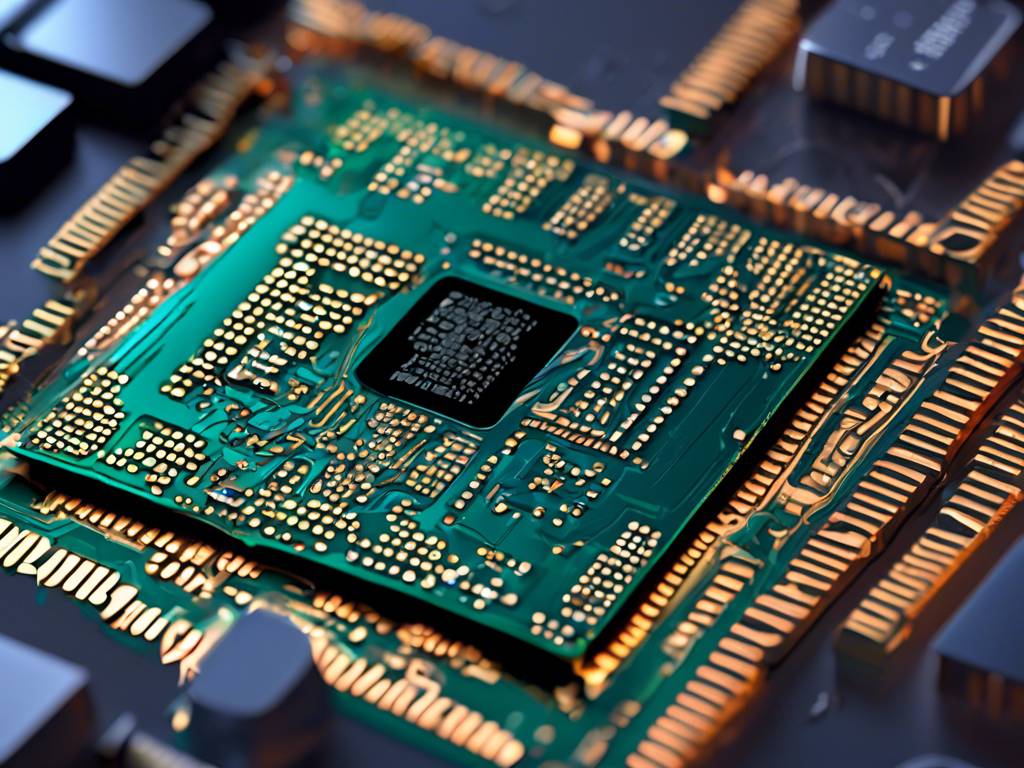Security Vulnerability in Apple’s M-Series Chips Puts Mac Users’ Crypto Private Keys at Risk
Researchers have discovered a significant security flaw in Apple’s M-series chips, raising concerns about the safety of crypto private keys stored on Mac computers. This vulnerability, known as a side-channel exploit, allows malicious actors to extract encryption keys while the chips are executing cryptographic protocols. Unlike typical vulnerabilities that can be fixed with software patches, this flaw resides in the microarchitectural design of the chips themselves, making it “unpatchable.” To mitigate the issue, third-party cryptographic software could be used, but this may impact the performance of earlier M-series chips. This finding exposes a fundamental weakness in Apple’s hardware security infrastructure.
Fundamental Weakness in Apple’s M-Series Chips Security Poses Threat to Crypto Holders
Hackers can intercept and exploit memory access patterns to gain unauthorized access to sensitive information, including encryption keys used by cryptographic applications. This type of attack, named the “GoFetch” exploit by researchers, operates seamlessly within the user environment and requires standard user privileges. Mac users have expressed concerns about the potential impact on password keychains and speculate whether Apple will address the problem directly within its operating system. Some users believe that Apple may already be aware of this flaw and are developing a new chip, M3, which includes an additional instruction to disable the vulnerable feature.
Apple Faces DOJ Lawsuit
This discovery adds to the challenges faced by Apple, including an ongoing antitrust lawsuit filed by the US Department of Justice (DOJ). The lawsuit alleges that Apple’s App Store rules and alleged monopoly have stifled competition and innovation. The DOJ also claims that Apple has restricted access to competing digital wallets and prevented developers from offering their own payment services. Last year, a class-action lawsuit was filed against Apple, accusing the company of limiting peer-to-peer payment options on its devices and blocking the integration of crypto technology in iOS payment apps. The complaint alleged that Apple entered into anti-competitive agreements with popular payment platforms, resulting in inflated prices for users. Furthermore, Apple’s guidelines require app developers to share 30% of transaction revenues, creating a barrier for crypto firms.
Hot Take: Protecting Your Crypto Private Keys
The security vulnerability in Apple’s M-series chips highlights the importance of safeguarding your crypto private keys. Here are some steps you can take to protect your keys:
- Use hardware wallets: Consider using a hardware wallet like Ledger or Trezor to store your private keys offline and away from potential vulnerabilities.
- Implement multi-factor authentication: Enable two-factor authentication (2FA) for your crypto wallets and exchanges to add an extra layer of security.
- Regularly update software: Keep your operating system and crypto software up to date with the latest security patches and updates.
- Be cautious of phishing attempts: Be vigilant when entering your private keys online and avoid clicking on suspicious links or downloading unknown files.
- Backup your keys: Make sure to create backups of your private keys and store them securely in multiple locations.
By following these best practices, you can enhance the security of your crypto assets and reduce the risk of falling victim to potential vulnerabilities.
Wyatt Newson emerges as a luminary seamlessly interweaving the roles of crypto analyst, dedicated researcher, and editorial virtuoso. Within the dynamic canvas of digital currencies, Wyatt’s insights resonate like vibrant brushstrokes, capturing the attention of curious minds across diverse landscapes. His ability to untangle intricate threads of crypto intricacies harmonizes effortlessly with his editorial mastery, transmuting complexity into a compelling narrative of comprehension.

